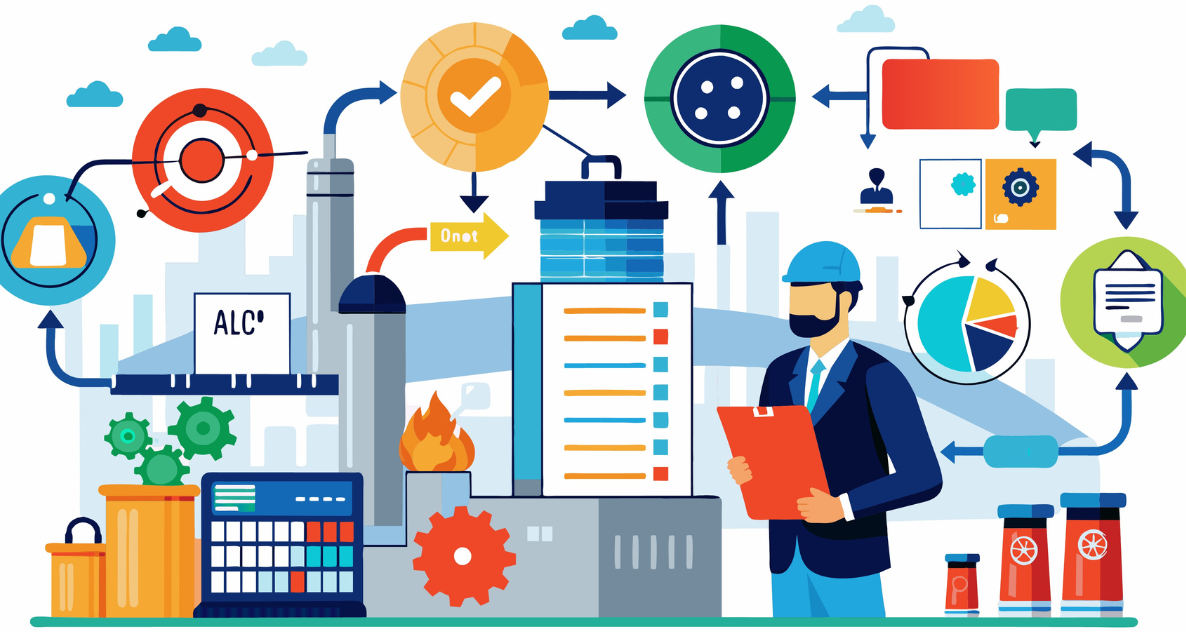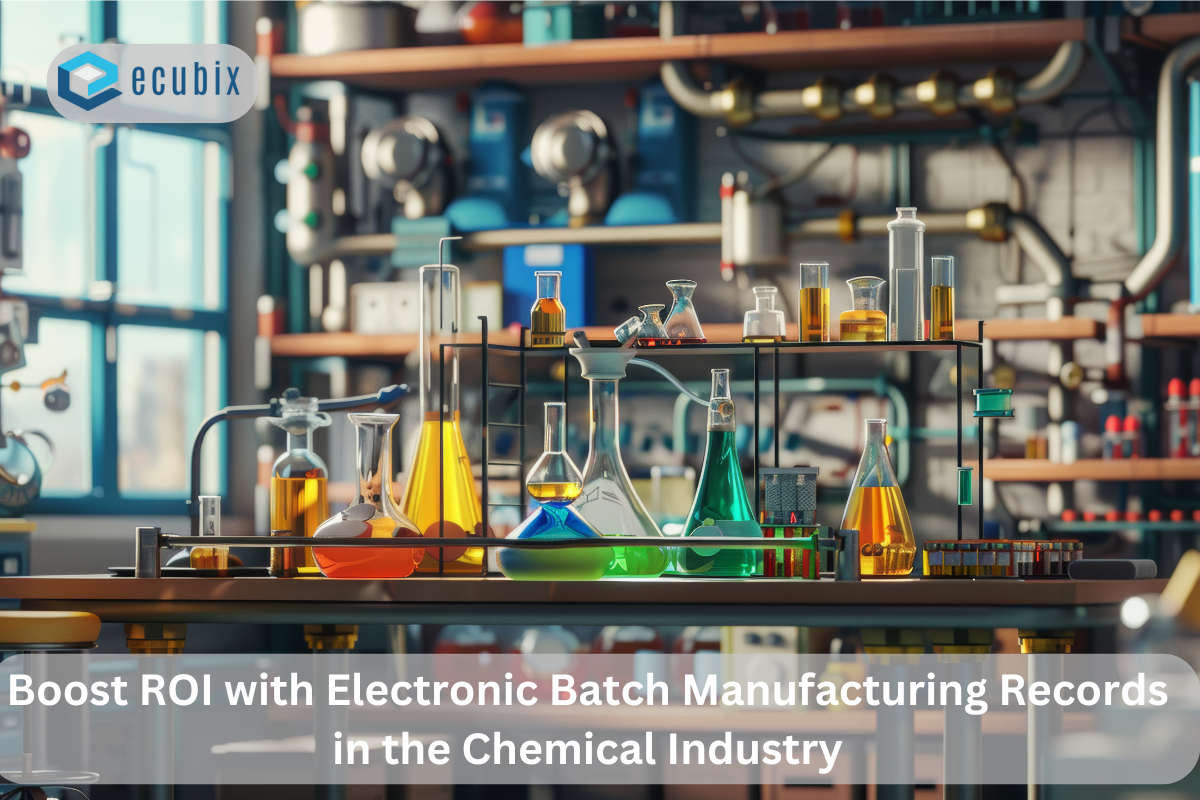In the specialty chemicals industry, precision and compliance are paramount. The production of specialty chemicals often involves complex formulations, strict adherence to process parameters, and rigorous quality control. Maintaining accurate and comprehensive batch records is essential not only for regulatory compliance but also for ensuring product quality and consistency. According to industry reports, over 90% of quality issues in specialty chemicals can be traced back to inadequate or inaccurate batch records, highlighting the critical importance of precise documentation.
Electronic Batch Manufacturing Records (eBMR) represent a significant evolution in how manufacturing processes are documented and managed. An eBMR system captures and stores manufacturing data electronically, integrating real-time data entry, validation, and workflow management into a cohesive digital platform. This transition to electronic records has been shown to reduce human error by up to 75%, significantly enhancing data accuracy and improving overall process efficiency. In fact, companies that have adopted eBMR systems report a 30% increase in production efficiency due to streamlined operations and reduced cycle times.
Additionally, the specialty chemicals industry faces rigorous regulatory oversight from agencies such as the FDA, EPA, and various international standards organizations. eBMR systems are specifically designed to comply with these stringent requirements by offering a dependable and auditable record of each batch. This ensures that manufacturers can effortlessly demonstrate compliance during inspections and audits, with studies indicating that eBMR implementation can reduce audit preparation time by as much as 50%.
Benefits of eBMR for Specialty Chemicals
1. Improved Accuracy and Precision
One of the most significant benefits of Electronic Batch Manufacturing Records (eBMR) in the specialty chemicals industry is the enhancement of accuracy and precision throughout the manufacturing process. Traditional paper-based systems in specialty chemicals manufacturing are prone to human error, whether due to manual data entry, misinterpretation of handwritten notes, or simple oversight. Studies show that manual data entry can result in error rates as high as 5-10%. eBMR systems eliminate these risks by automating data capture and validation, reducing error rates by up to 90%, and ensuring that all information is accurately recorded and consistent across the production process of specialty chemicals.

Enhanced data integrity is another key advantage in the context of specialty chemicals. eBMR systems maintain a single source of truth, where all data is stored in a secure, centralized database. This reduces the likelihood of inconsistencies or discrepancies in the records, ensuring that every aspect of the batch production in specialty chemicals is precisely documented. As a result, companies report up to a 40% improvement in data accuracy, creating a more reliable and trustworthy record-keeping system, which is critical for maintaining high standards in specialty chemicals manufacturing.
2. Enhanced Efficiency and Productivity
eBMR systems significantly enhance operational efficiency and productivity in the specialty chemicals sector by streamlining the batch manufacturing process. Automated data entry and process management reduce the time required to complete each step, leading to shorter cycle times and faster production turnaround in specialty chemicals manufacturing. Companies that have adopted eBMR systems report a reduction in cycle times by 20-30%, allowing them to increase output and better meet customer demands in the specialty chemicals industry.
Real-time decision-making and problem-solving are also greatly improved with eBMR in specialty chemicals. As data is captured and processed instantly, production managers and quality control teams can monitor processes as they happen, identifying and addressing issues before they escalate. This real-time visibility can lead to a 25% reduction in production downtime, allowing for more agile and responsive operations, which is particularly valuable in the dynamic and highly specialized field of specialty chemicals.
3. Better Compliance and Traceability
Compliance with regulatory standards is a top priority in specialty chemicals manufacturing, and eBMR systems offer significant advantages in this area. By automating adherence to compliance standards, eBMR ensures that all processes in specialty chemicals manufacturing are performed in line with industry regulations and internal quality protocols. This automatic compliance reduces the risk of violations by up to 60% and ensures that specialty chemicals products consistently meet the required specifications.
Traceability is another critical aspect where eBMR excels in the specialty chemicals industry. Every action taken during the manufacturing process is logged in real-time, creating a comprehensive and easily accessible record of the entire batch history in specialty chemicals production. This makes it easier to trace any issues back to their source, facilitating root cause analysis and simplifying the process of reporting during audits or inspections. The ability to quickly and accurately trace batch records can reduce audit preparation time by 50%, which is essential for maintaining regulatory compliance and responding to any potential quality concerns in the specialty chemicals sector.
4. Cost Savings and Return on Investment (ROI)
Implementing an eBMR system also leads to significant cost savings in specialty chemicals manufacturing, both in the short and long term. One of the most immediate benefits for the specialty chemicals industry is the reduction in paperwork and associated storage costs. By eliminating paper records, companies can reduce record-keeping costs by up to 70%, including savings on storage, printing, and administrative tasks in specialty chemicals production.
In the long term, eBMR systems provide a strong return on investment (ROI) for specialty chemicals manufacturers by improving operational efficiency, reducing the risk of costly errors, and minimizing the likelihood of regulatory fines or product recalls. Studies indicate that companies implementing eBMR systems can achieve an ROI of up to 150% within the first three years, driven by higher productivity and better resource utilization in the specialty chemicals industry, further boosting profitability over time.
5. Quality Control
Quality control is a critical component of specialty chemicals manufacturing, and eBMR systems play a pivotal role in ensuring that specialty chemicals products meet the highest standards. In-process quality checks are integrated into the eBMR workflow, allowing for continuous monitoring of key parameters throughout the production process of specialty chemicals. This ensures that any deviations from the specified standards are immediately detected and addressed, reducing the risk of defects by up to 50%.

Automated alerts and notifications are another valuable feature of eBMR systems in specialty chemicals production. If a process parameter falls outside the acceptable range, the system automatically triggers an alert, allowing operators to take corrective action without delay. This proactive approach to quality control can prevent up to 30% of potential quality issues before they affect the final product, ensuring that each batch of specialty chemicals meets the required specifications.
Corrective and Preventive Actions (CAPA) are also facilitated by eBMR systems in specialty chemicals manufacturing. When a quality issue is identified, the system can automatically initiate CAPA procedures, documenting the actions taken and ensuring that similar issues are prevented in future batches of specialty chemicals. This systematic approach to quality management supports continuous improvement and helps maintain the high standards required in specialty chemicals manufacturing, contributing to a reduction in defect rates by up to 40%.
At Last Summary:
eBMR systems offer significant cost savings by reducing paperwork and storage needs, while also boosting quality control through continuous monitoring and automated alerts. The future of eBMR in specialty chemicals includes advancements in AI, integration with advanced manufacturing technologies, and adapting to an evolving regulatory landscape, all of which will further optimize production and compliance in the industry.






















